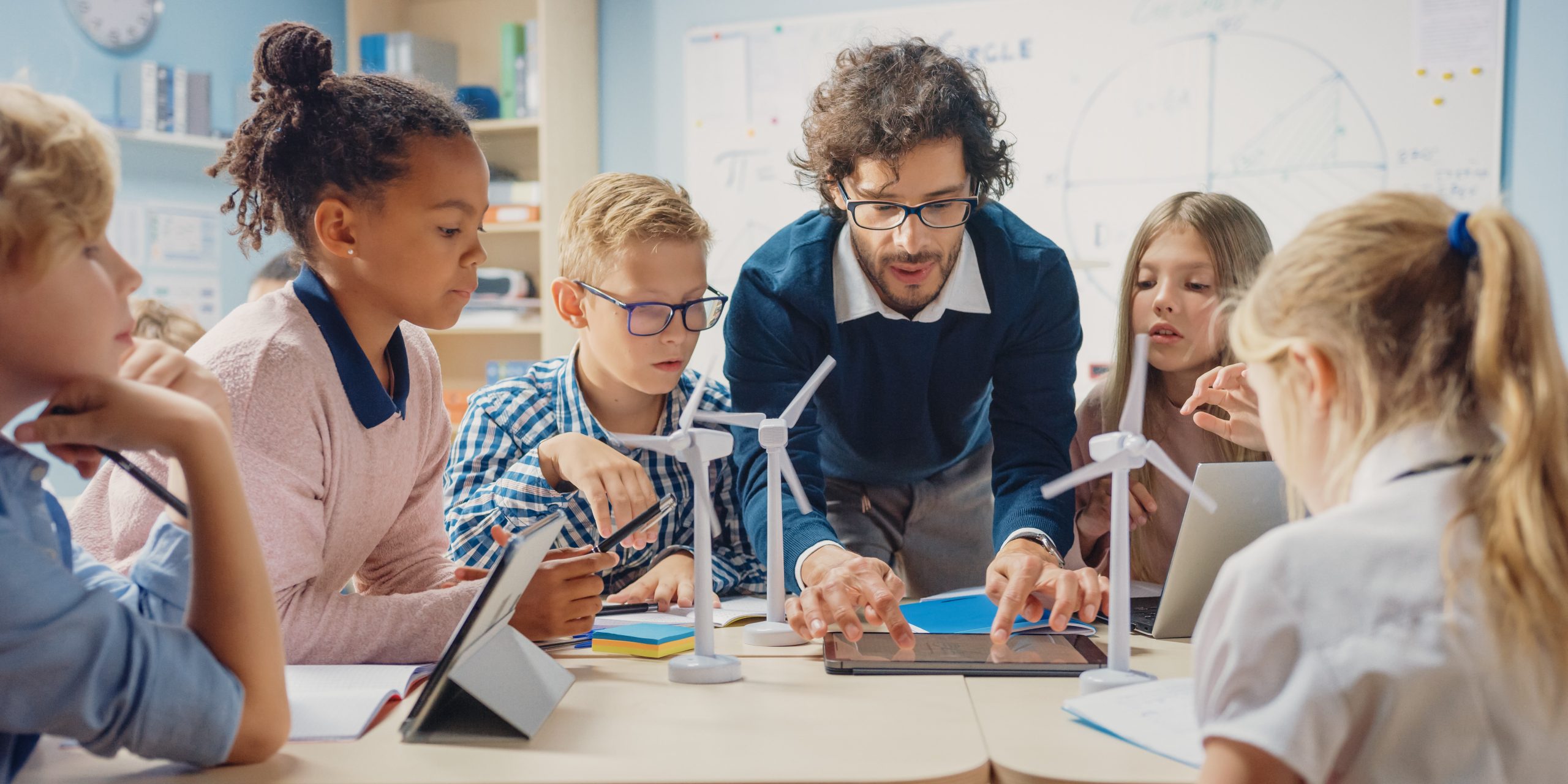Unlock Your Child’s Potential with Primary Science Tuition Singapore
Wiki Article
Checking Out the Different Mentor Techniques in Primary Science Education Today
The landscape of primary science education and learning is progressing, with various mentor approaches acquiring prominence in contemporary classrooms. Inquiry-based knowing, hands-on experiments, and the integration of technology are redefining exactly how teachers involve young minds. Additionally, joint methods and differentiated guideline are being utilized to satisfy the varied demands of trainees, enhancing both engagement and understanding. As we check out these methods, inquiries arise about their performance and the ramifications for future instructional methods. What might these changes in method mean for the following generation of students?Inquiry-Based Understanding
Inquiry-Based Understanding (IBL) is a pedagogical strategy that encourages students to check out scientific concepts with wondering about, investigation, and hands-on experimentation. This approach stresses the function of students as active individuals in their knowing, advertising crucial reasoning and analytical abilities. By involving with real-world questions, trainees end up being inspired and curious, which improves their understanding of scientific principles.In IBL, teachers function as facilitators, assisting pupils as they navigate their queries instead than delivering info straight. This student-centered strategy permits for differentiation, suiting numerous learning designs and paces. Pupils establish abilities in creating hypotheses, designing experiments, and analyzing data, which are essential for scientific literacy.
Additionally, IBL cultivates partnership among students, urging them to share ideas and findings. This cumulative questions advertises social skills and a sense of community within the classroom. The process of query motivates resilience, as trainees find out to welcome failure as a tipping rock towards understanding.
Hands-On Experiments
Hands-on experiments are a crucial component of efficient science education, enhancing the concepts of inquiry-based knowing. These experiments permit students to engage directly with scientific ideas, promoting a much deeper understanding through experiential learning. By adjusting materials and observing end results, young students can understand abstract theories in concrete methods.Such activities advertise crucial thinking and analytic abilities, as trainees assume end results, conduct experiments, and analyze results. This procedure urges them to ask inquiries, fine-tune their understanding, and develop a scientific mindset. Furthermore, hands-on experiments can be tailored to diverse knowing styles, guaranteeing that all pupils have the chance to involve meaningfully with the material.
Moreover, hands-on experiments typically motivate cooperation among peers, promoting synergy and interaction skills. Operating in teams enables pupils to share concepts, talk about findings, and gain from one another, which improves their general educational experience.
Integrating hands-on experiments into the primary scientific research curriculum not only improves the discovering environment but likewise grows a long-lasting rate of interest in science. By actively joining their education and learning, pupils are more probable to develop a passion for scientific inquiry that extends beyond the class.

Technology Combination
Integrating modern technology right into primary scientific research education has come to be progressively necessary in promoting trainee interaction and enhancing discovering end results. Making use of electronic devices, such as interactive simulations, virtual labs, and educational software program, provides pupils with possibilities to discover clinical concepts in ingenious methods. These resources facilitate a much deeper understanding of complicated topics by enabling students to picture and manipulate variables that would certainly be unwise in a conventional class setting.Furthermore, technology combination motivates customized discovering experiences. Pupils can proceed at their very own rate, revisiting difficult principles via multimedia resources, which accommodate different discovering designs. This adaptability not only sustains specific development yet also cultivates a feeling of autonomy in learners.
Furthermore, innovation works as a bridge to real-world scientific research, attaching students with current study and specialist contributions. Access to online databases and clinical journals widens trainees' viewpoints on scientific inquiry and promotes essential thinking skills.
Collaborative Understanding
Collective learning plays a vital duty in main scientific research education and learning by cultivating teamwork and interaction skills amongst pupils. This strategy motivates learners to interact, share expertise, and take part in analytical, which improves their understanding of scientific concepts. By joining team activities, students discover to express their concepts, pay attention to varied point of views, and discuss solutions, all of which are necessary abilities in both scholastic and real-world contexts.
Study suggests that joint knowing can bring about boosted motivation and engagement in scientific research subjects, as pupils discover satisfaction in shared experiences (primary science tuition Singapore). Furthermore, this strategy prepares pupils for future collaborative ventures, outfitting them with the skills required for reliable synergy in college and specialist atmospheres. Inevitably, welcoming joint learning in primary science education can dramatically improve the understanding experience and advertise a much deeper understanding of clinical inquiry
Distinguished Direction

Distinguished guideline can materialize in various means, such as differing the content, procedures, or products of learning. As an example, instructors might use tiered jobs that provide varying degrees of intricacy, enabling students to work at their respective readiness get more degrees. In addition, versatile grouping methods can assist in collaboration among pupils with various capabilities, promoting peer knowing.
Analysis plays a vital duty in this approach, as it informs instruction and helps educators understand each pupil's unique needs. Formative assessments, such as quizzes and monitorings, can lead instructors in adjusting their approaches to boost discovering outcomes. primary science tuition Singapore. Inevitably, by implementing differentiated direction in key science education and learning, teachers can cultivate a much more efficient and fair learning environment, equipping all pupils to reach their complete capacity in comprehending clinical sensations
Conclusion
In recap, the diverse teaching techniques in key scientific research education and Homepage learning, including inquiry-based learning, hands-on experiments, innovation integration, collective discovering, and differentiated direction, collectively add to a more effective knowing environment. These techniques advertise crucial reasoning, problem-solving skills, and a deeper comprehension of clinical principles. By applying these strategies, educators can develop supportive and engaging classrooms that deal with the diverse demands of pupils, eventually cultivating a lifelong rate of interest in scientific research and boosting academic accomplishment.Inquiry-Based Knowing (IBL) is an instructional strategy that motivates trainees to discover clinical concepts through questioning, examination, and hands-on trial and error.Collective understanding plays a crucial role in primary scientific research education by fostering synergy and communication abilities among students.Research shows that collaborative learning can lead to increased inspiration and involvement in science topics, as students discover satisfaction in common experiences.In promoting an inclusive discovering atmosphere, distinguished direction arises as a vital technique to suit the diverse requirements and abilities of pupils in key scientific research education. Ultimately, by carrying out differentiated instruction in click to read primary science education and learning, teachers can grow a much more equitable and effective discovering environment, empowering all pupils to reach their full capacity in recognizing scientific sensations.
Report this wiki page